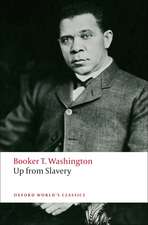Food Choice and Obesity in Black America: Creating a New Cultural Diet
Autor Eric J. Baileyen Limba Engleză Hardback – 29 mai 2006 – vârsta până la 17 ani
Preț: 345.67 lei
Preț vechi: 476.25 lei
-27% Nou
Puncte Express: 519
Preț estimativ în valută:
66.15€ • 68.81$ • 54.61£
66.15€ • 68.81$ • 54.61£
Carte tipărită la comandă
Livrare economică 14-28 aprilie
Preluare comenzi: 021 569.72.76
Specificații
ISBN-13: 9780865693302
ISBN-10: 0865693307
Pagini: 184
Dimensiuni: 156 x 235 x 20 mm
Greutate: 0.45 kg
Editura: Bloomsbury Publishing
Colecția Praeger
Locul publicării:New York, United States
ISBN-10: 0865693307
Pagini: 184
Dimensiuni: 156 x 235 x 20 mm
Greutate: 0.45 kg
Editura: Bloomsbury Publishing
Colecția Praeger
Locul publicării:New York, United States
Notă biografică
Eric J. Bailey is a Medical Anthropologist and Associate Professor of Anthropology and Family Medicine at East Carolina University. In earlier roles, he served as Program Director for the Masters in Public Health Program in Urban Public Health at Charles R. Drew University of Medicine and Science, as well as Health Scientist for the National Institutes of Health National Center on Minority Health and Health Disparities.
Recenzii
The very existence of this book, a research-based cultural approach to dietary change, is noteworthy. Bailey begins by leading the reader through nutrition-related health problems common to Americans and particularly prevalent among African Americans: overweight and obesity, diabetes, and heart disease. What is different is that he then considers African American cultural perspectives on factors such as body image, exercise, and food choice. He concludes by proposing a new approach to lifestyle change for African Americans. Bailey uses a direct writing style and includes data from his research in this work, which has a textbook layout with chapter objectives and review questions, making it appropriate for college lecture format.. This is a valuable, timely complement to general food and culture titles..Highly recommended. All collections.
Food Choice and Obesity in Black America is a very insightful, informative book--perhaps the first of its kind. It incorporates quantitative and qualitative data, national statistics, historical facts and andecdotal experience as the means to describe how culture is important to the key components of healthy weight among African Americans: disease burden, food choices, and physical activity habits.
Bailey is to be commended for having the courage to present numerous qualitative and quantitative data sets that illuminate the attitudes, beliefs, and behaviors that exist within African American communities. The qualitative methodologies are especially valuable to the reader who wants to gain some insight into the impact of sociocutlural influences on the internal-external affective and cognitive processes of African American women coping with obesity..This volume is recommended for anyone in the general population and for practitioners in training who want to learn how to provide culturally informed interventions involving food preferences, exercise, and diet for African Americans. This volume can also be used in women's studies, Black studies, child development and family studies, psychology, sociology, education, and cultural anthropology courses. It is easy to read and is filled with data and suggestions on how to implement significant lifestyle changes in a culturally informed manner.
Bailey examines the cultural and medical issues surrounding overweight and obesity issues in the African American community. He first reports on medical data regarding obesity among African Americans, later providing chapters on African American body images, the cultural history of African American food preferences, African American attitudes towards exercise and fitness programs. He concludes with discussion of how to successfully incorporate cultural concerns into diet and physical fitness programs.
Taking both a cultural and holistic look at the black community's health plagues--heart attacks, strokes, high blood pressure and Type II diabetes--Bailey serves up his own version of a new cultural diet. Rather than condemning traditional African-American culture, he wants to use its rich heritage to help blacks address and solve their life-threatening weight issues..His book takes a fascinating and thorough look at the West African and early Southern roots of soul food..If, as Bailey writes, culture is the key in winning this battle of overweight and obesity, African Americans surely have a head start on conquering their own two-headed plague.
Not only is obesity more prevalent among Black Americans than other ethnic groups, Blacks also are more likely to be diagnosed with diabetes, according to the Centers for Disease Control and Prevention. And they are more likely to experience higher rates of serious complications from the disease, such as blindness, amputation and end-stage renal disease. There are many cultural reasons for the higher rates of obesity, as Bailey cites in his book, having to do not only with food but also with physical activity.
If Doctors, Healthcare and the Fitness industries ever wondered why African Americans are not coming in droves, this book is a Must Read! By simply overlaying Eurpean Ethnic ideals onto Black Americans, a disservice is being done toboth ethnicities. Eric Bailey has a catch-phrase that should be on the tip of everyone's tongue in the aformentioned industries: 'Culturally Appropriate'. .A sure winner in the fight against obesity for Eric Bailey.
Food Choice and Obesity in Black America is a very insightful, informative book--perhaps the first of its kind. It incorporates quantitative and qualitative data, national statistics, historical facts and andecdotal experience as the means to describe how culture is important to the key components of healthy weight among African Americans: disease burden, food choices, and physical activity habits.
Bailey is to be commended for having the courage to present numerous qualitative and quantitative data sets that illuminate the attitudes, beliefs, and behaviors that exist within African American communities. The qualitative methodologies are especially valuable to the reader who wants to gain some insight into the impact of sociocutlural influences on the internal-external affective and cognitive processes of African American women coping with obesity..This volume is recommended for anyone in the general population and for practitioners in training who want to learn how to provide culturally informed interventions involving food preferences, exercise, and diet for African Americans. This volume can also be used in women's studies, Black studies, child development and family studies, psychology, sociology, education, and cultural anthropology courses. It is easy to read and is filled with data and suggestions on how to implement significant lifestyle changes in a culturally informed manner.
Bailey examines the cultural and medical issues surrounding overweight and obesity issues in the African American community. He first reports on medical data regarding obesity among African Americans, later providing chapters on African American body images, the cultural history of African American food preferences, African American attitudes towards exercise and fitness programs. He concludes with discussion of how to successfully incorporate cultural concerns into diet and physical fitness programs.
Taking both a cultural and holistic look at the black community's health plagues--heart attacks, strokes, high blood pressure and Type II diabetes--Bailey serves up his own version of a new cultural diet. Rather than condemning traditional African-American culture, he wants to use its rich heritage to help blacks address and solve their life-threatening weight issues..His book takes a fascinating and thorough look at the West African and early Southern roots of soul food..If, as Bailey writes, culture is the key in winning this battle of overweight and obesity, African Americans surely have a head start on conquering their own two-headed plague.
Not only is obesity more prevalent among Black Americans than other ethnic groups, Blacks also are more likely to be diagnosed with diabetes, according to the Centers for Disease Control and Prevention. And they are more likely to experience higher rates of serious complications from the disease, such as blindness, amputation and end-stage renal disease. There are many cultural reasons for the higher rates of obesity, as Bailey cites in his book, having to do not only with food but also with physical activity.
If Doctors, Healthcare and the Fitness industries ever wondered why African Americans are not coming in droves, this book is a Must Read! By simply overlaying Eurpean Ethnic ideals onto Black Americans, a disservice is being done toboth ethnicities. Eric Bailey has a catch-phrase that should be on the tip of everyone's tongue in the aformentioned industries: 'Culturally Appropriate'. .A sure winner in the fight against obesity for Eric Bailey.














